
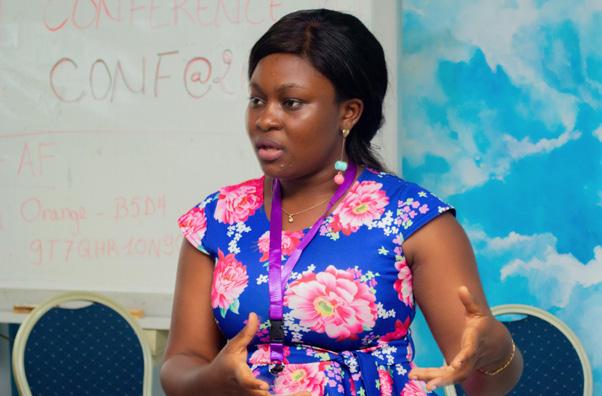
IMPACT STORIES
2021 – 2025



IMPACT STORIES
2021 – 2025
Many Christian scholars want to put their faith into action through their academic disciplines. But IFES has found that they often lack the confidence or resources to do so. From 2021 –2025, the Logos and Cosmos Initiative (LCI) equipped 96 students and academics to bring theology and the sciences together to further God’s Kingdom.
With transformational training, mentoring, and funding, these dynamic young “Catalysts” have led projects in their universities that have sparked curiosity and wonder about faith and science. By collaborating with IFES national movements, their projects have enriched whole-life discipleship, engaged new audiences through dialogue and witness, and helped
address some of the biggest issues of our time. Read on to discover how Catalysts’ projects have tackled such topics as human gene editing, the environmental crisis and youth mental health.
The Logos and Cosmos Initiative is part of IFES’ mission to engage the university and to impact all of society for the glory of Christ. We offered this groundbreaking program in Latin America and Francophone Africa thanks to a generous five-year grant from the John Templeton Foundation, which concluded in 2025. Today IFES is celebrating the fruit of the LCI and is committed to continuing it with new sources of support.
LCI PARTICIPANTS HAVE SHOWN THE GLOBAL IFES FAMILY NEW WAYS OF BEING INCARNATIONAL IN OUR CHRISTIAN WITNESS IN THE UNIVERSITY. THE PROGRAM HAS BEEN CATALYTIC, MOBILISING CHRISTIAN STUDENTS AND FACULTY TO SPEAK ABOUT AND APPLY THEIR CHRISTIAN FAITH AND THEIR ACADEMIC DISCIPLINES TO KEY ISSUES FACING THEIR COUNTRIES.”
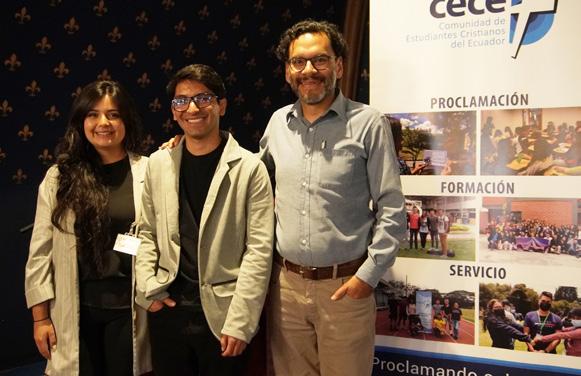
In Ecuador, Álvaro Pérez led an LCI project to promote dialogue about bioethical and Christian perspectives on gene editing for the treatment of human diseases.
With advancements in technology, scientists have developed faster, cheaper, and more precise methods for editing the human genome. These innovations have bolstered support for gene therapy as a promising approach to treat disease. While there are varying opinions on gene editing among faith communities, Álvaro has come to believe that these new ways to treat disease embody the principle of loving our neighbor as ourselves.
In collaboration with CECE, his IFES national movement, Álvaro’s project sought to move the conversation from “Is gene editing right?” to “How can it be done righteously?”
Álvaro, a researcher at the University of San Francisco, Quito, organized an academic forum at the university, which was attended by more than 100 students. The panel featured two Christian speakers and one atheist, allowing participants to delve into the complexities of gene editing from varied perspectives and engage in inclusive, constructive dialogue.
“We were able to look for common ground from different perspectives,” explains Álvaro. “Ultimately, the speakers came to the same conclusions, for example the need for effective regulation from ethics committees on research.”
He was encouraged that even professors who don’t share his faith were enthusiastic about the event. “Many of them have expressed an interest in having more events like this,” he notes.
Álvaro published a video interview with a Christian expert on bioethics and a Bible study guide about the responsible use of gene editing from a Christian perspective. He has shared his project findings by delivering talks at IFES movement events in Ecuador, Peru, and Uruguay.
“THROUGH MY PROJECT, I HAVE GAINED A BETTER UNDERSTANDING OF MY CALLING AND HAVE LEARNED TO EXPRESS MY FAITH IN A WAY THAT ALIGNS WITH MY ACADEMIC VOCATION.”
Álvaro Pérez Biotechnologist and LCI Catalyst
“Through his project, Álvaro has made gene editing and bioethics more accessible to those unfamiliar with the topic,” says Guadalupe Muñoz, General Secretary of CECE. “I am very grateful for the resources and events he has contributed to CECE.”
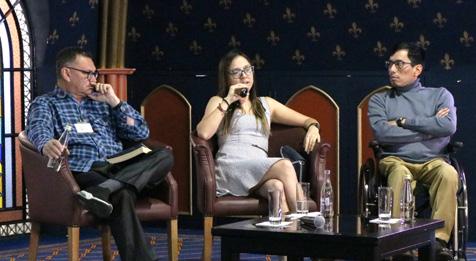
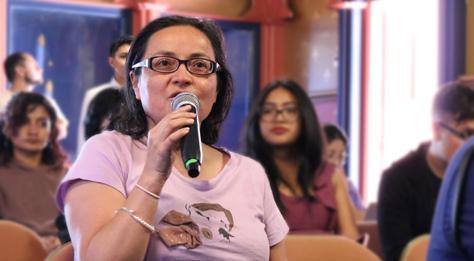
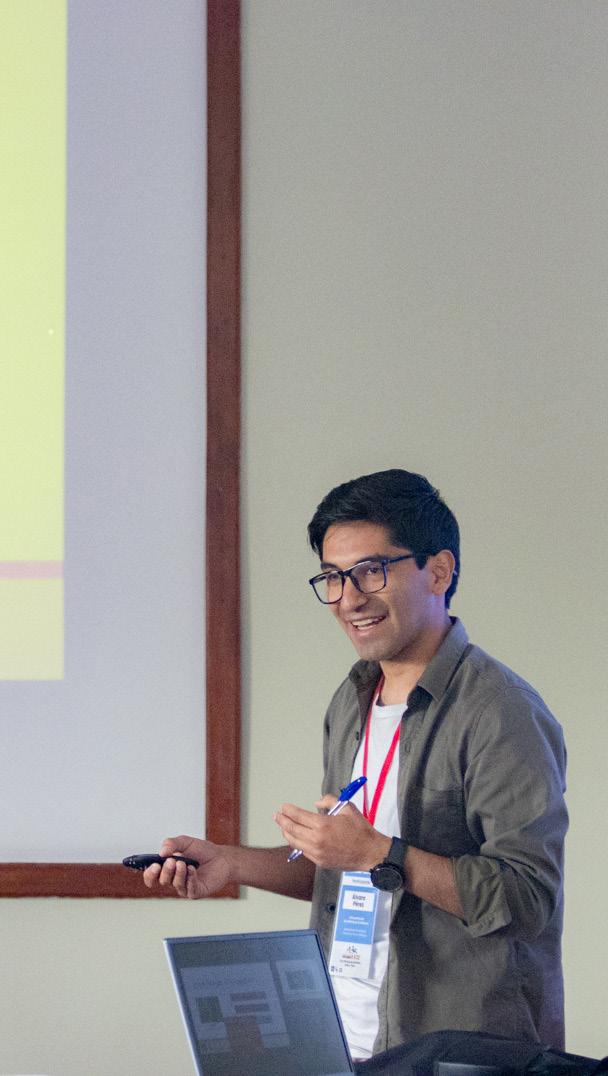
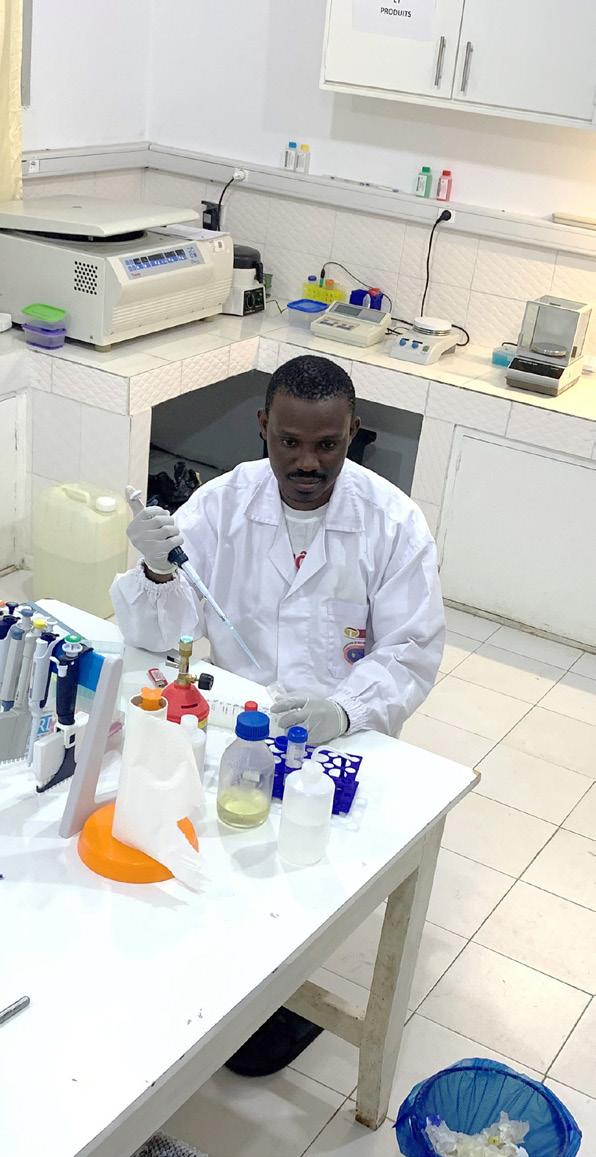
From COVID-19 to mpox, 75 percent of new or emerging infectious diseases are zoonotic – spread from animals to humans. In Côte d’Ivoire, biology graduate student Eustache Hounyeme spearheaded an LCI project to explore how faith communities can help prevent the spread of these diseases.
His project aligns with the World Health Organization’s “One Health” approach, which advocates for holistic methods for disease prevention. Engaging religious communities in preventing disease has proven effective in several African countries.
Collaborating with trained students from GBUCI, his IFES movement, Eustache conducted literature reviews, focus groups and surveys to understand the impact of faith communities’ beliefs and practices on the spread of COVID-19, mpox (formerly known as monkeypox) and sleeping sickness (African trypanosomiasis). His team surveyed 200 people across 20 places of worship (evangelical, Catholic, and Muslim).
“We found that religious beliefs can help or hinder disease prevention,” shares Eustache. “For example, a belief in divine protection leads some people to avoid prevention measures and the belief that illness is a divine punishment can cause reluctance to seek medical help. However, instead of viewing these beliefs as barriers, it is crucial to understand them and use them as a starting point for dialogue with communities. This allows for the creation of relevant health messages that are more likely to be accepted.”
Eustache’s data enables him to make culturally relevant recommendations for preventing and controlling zoonotic diseases. He has presented his results at a national public health conference. Three sociology graduate students from his project team will incorporate the findings into their master’s theses.
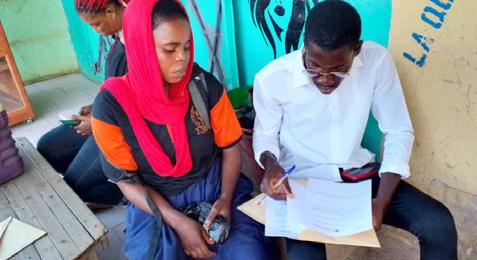
“COLLABORATION BETWEEN PUBLIC HEALTH AUTHORITIES AND RELIGIOUS COMMUNITIES IS A STRATEGIC LEVER FOR DISEASE PREVENTION. FAITH COMMUNITIES SIGNIFICANTLY INFLUENCE PEOPLE’S
CRISES.”
Eustache Hounyeme Biology graduate student and LCI Catalyst

Eustache also shared the findings at a workshop at Alassane Ouattara University, attended by more than 35 students, researchers and members of religious, civil society and public health organizations. Participants engaged in constructive dialogue and discussed possible solutions.
At a GBUCI regional camp, Eustache spoke about his project and prompted Christian students to reflect on how they can integrate faith, science, and culture for the good of God’s world.
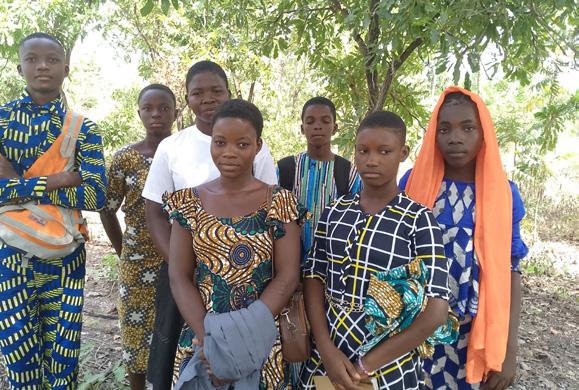
Benin, in West Africa, is one of the countries most vulnerable to climate change. Benin’s forests help regulate climate through carbon sequestration, and they also harbor biodiversity, provide food and medicinal plants and control erosion. But unregulated deforestation means they are disappearing fast.
When Camille Yabi conducted an LCI-funded study, he found that 75 percent of evangelical church leaders surveyed were not interested in the Christian call to creation care. As a geography PhD student involved with GBEEB, his IFES national movement, he has seen how environmental stewardship is poorly addressed in universities too.
Just two years after his study, Camille launched a botanical garden as part of his project.
“My project brought together students, church leaders and other religious groups around a botanical garden to learn about environmental
ENVIRONMENTAL STEWARDSHIP
protection through the preservation of local endangered species,” shares Camille.
The 6-hectare garden is managed by trained student volunteers from GBEEB. They have preserved existing flora and planted 300 endangered plants and 1,000 trees. The garden has been the focal point for inter-religious dialogue meetings between Protestants, Catholics, and leaders of traditional African religions.

Students and secondary school pupils from GBEEB frequently visit for educational field trips. “We have learned that it is really important to take students into the field –rather than a classroom – to help them get in touch with the natural environment and motivate them to care for it,” explains Camille.
During visits, students discover what the Bible says about our Christian responsibility to steward God’s earth (Genesis 1 and 2), using study guides produced by Camille.
“Students have been transformed,” he says. “They have a new commitment to protecting the environment. Some have started a campaign to clean up their university campus, while others have adopted environmentally friendly practices at home and in their communities.”
This is an action-research project, which means Camille will incorporate his findings into his PhD thesis and will share them in other scholarly articles.
“CAMILLE’S PROJECT HAS HELPED OUR MOVEMENT GIVE CONCRETE EXPRESSION TO OUR CALL TO BE SALT AND LIGHT IN OUR ENVIRONMENT. THE GARDEN’S RELEVANCE EXTENDS FAR BEYOND A SINGLE GENERATION.”
Hake Chabi Assa General Secretary of GBEEB, the IFES movement in Benin
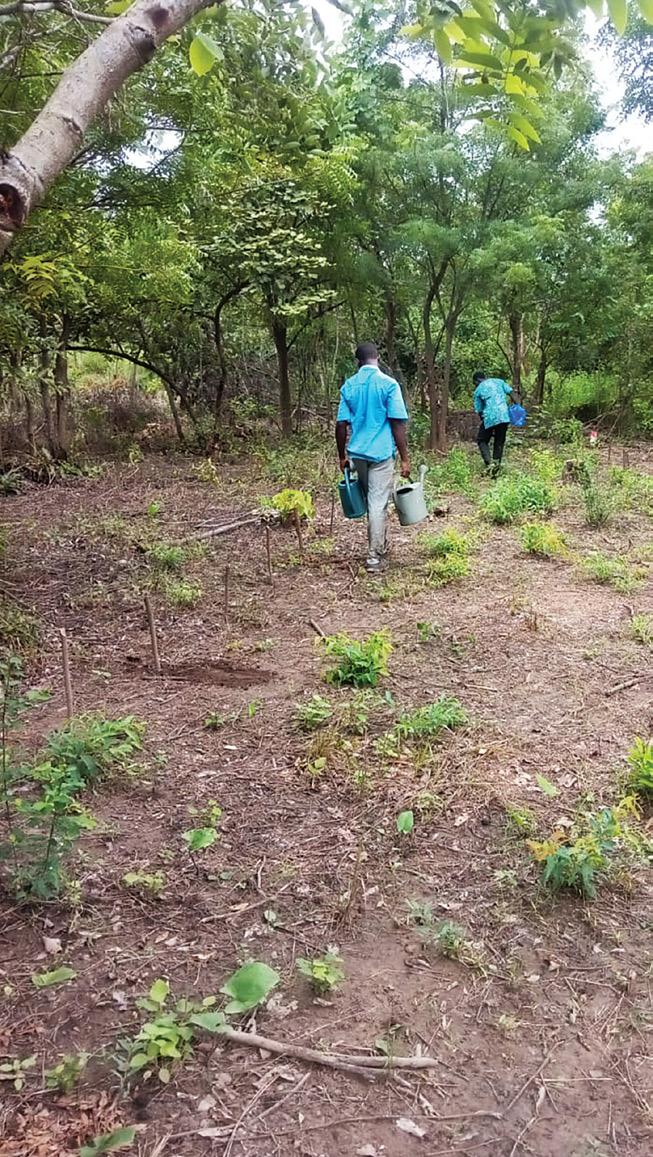
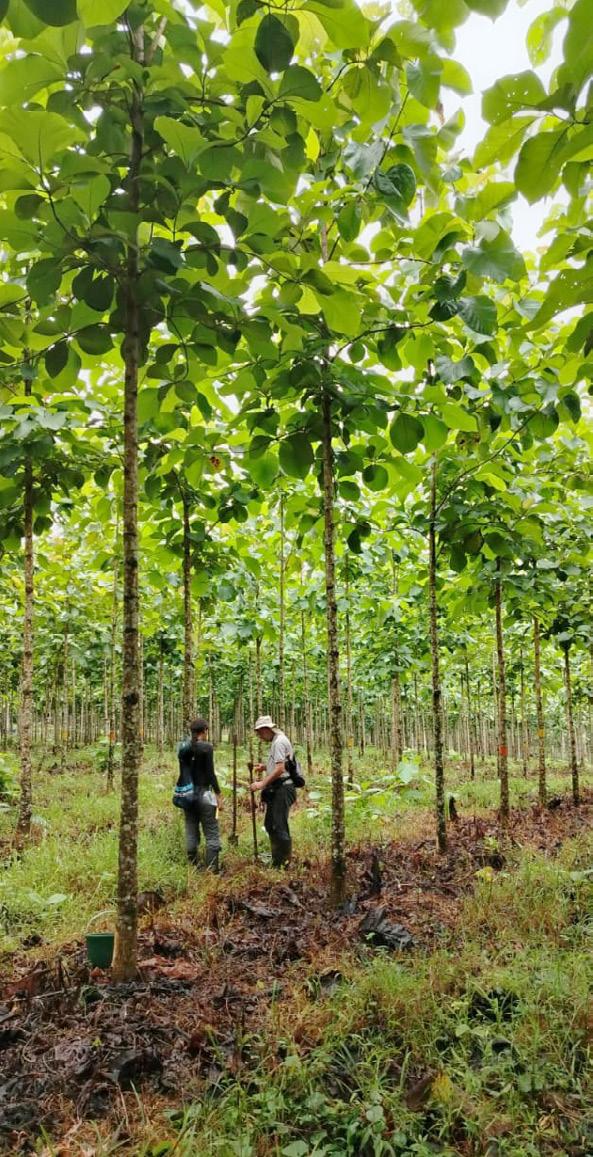
Soil is the foundation of our lives, but it is dying,” warns Mónica Cortés, a graduate student in organic agriculture at the National University in Costa Rica. Her country is renowned for its biodiversity, but commercial timber plantations are degrading the soil through the use of synthetic herbicides and inorganic fertilizers. Although sustainable alternatives exist, Mónica notes that their adoption has been slow and soil conservation is inadequately covered in forestry engineering courses.
Collaborating with ECU, the IFES movement in Costa Rica, Mónica used research, dialogue, and theology to raise students’ awareness about environmental stewardship, particularly soil management.
At the School of Environmental Sciences, Mónica surveyed forestry students to gauge their perspectives on sustainable forestry and the interplay between religion and the environment. She collected and analyzed soil samples from an experiment with five
vegetation covers, yielding evidence of the positive impact of sustainable forestry practices on soil quality.
Mónica presented her findings to more than 25 students at her dropin “outreach lab” in the faculty hallway. The students were able to brainstorm sustainable forestry solutions, dialogue about science
“I HOPE THIS KIND OF WORKSHOP MARKS THE BEGINNING OF MANY SUCH SPACES WHERE STUDENTS ARE ENCOURAGED TO THINK BEYOND TRADITIONAL BIBLE STUDY GROUPS AND TO CONTEXTUALIZE THE GOSPEL IN THEIR ACADEMIC CAREERS.”
Brayan Chaves General Secretary of ECU, the IFES movement in Costa Rica
and religion, and discover what the Bible says about stewarding God’s earth, for example the concept of a “Sabbath year for the land” outlined in Leviticus 25.
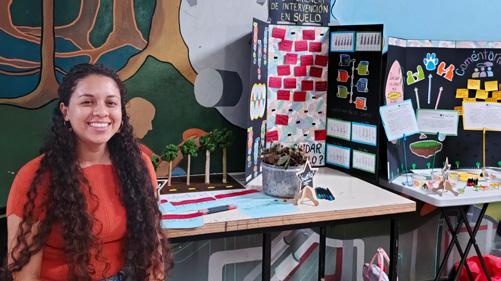
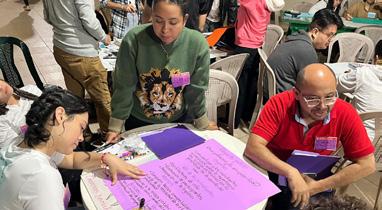
One forest science student remarked: “I gained a greater perspective on the link between science and faith that motivated me to read more about this and its relationship with my academic career.”
Within ECU, Mónica worked with an interdisciplinary team to produce a Bible study guide containing biblical perspectives on creation care and ideas for practical action. She also led a workshop at the national camp, assisting 77 students in identifying opportunities to integrate their faith with their academic expertise. She guided them in developing pilot projects to be implemented on their campuses.
“Leading this workshop allowed me to see myself as a Catalyst: teaching and motivating others to have a voice in the midst of social or environmental problems,” explained Mónica.
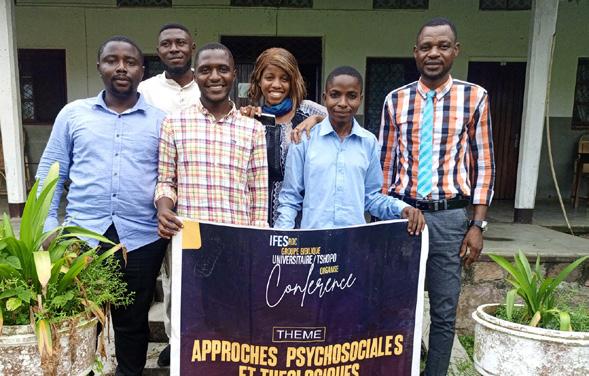
If we are not able to put an end to the longrunning war in the Democratic Republic of Congo, let’s at least take care of those suffering its negative effects,” vowed Sarah Obotela, a sociology graduate in the DRC and staff member with GBU, the IFES movement.
Since independence in 1960, the DRC has suffered decades of conflict and violence, which continues today in the east. Many civilians, having fled to more stable areas, continue to suffer from Post Traumatic Stress Disorder (PTSD). Mental health remains a taboo subject, causing many students to struggle in silence.
From 2023 – 2024, she led an LCI project that integrated psychosocial and theological approaches to bring emotional healing to students traumatized by the conflict.
Sarah organized a conference at the University of Kisangani where experts in theology, psychology, and sociology shared their insights so that victims could begin to recognize PTSD and its impact. More than 40 students
attended. Those who recognized such trauma in their own lives then received follow-up visits from Sarah and a team of GBU volunteers, accompanied by psychologists and pastors.
Once trust was established, approximately 25 students accepted Sarah’s invitation to a private day-conference, where they were encouraged to share their stories and process their trauma.
“As the students vented their feelings, we witnessed liberation from hatred, anger, and resentment,” shares Sarah. “Many finally broke their silence and verbalized their traumatic experiences.”
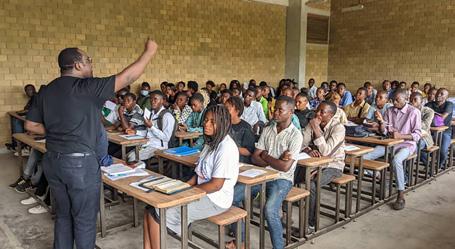
From 2024 – 2025, Sarah collaborated with another LCI Catalyst, Nina Ble Toualy from Côte d’Ivoire, on an expanded project tackling student mental health in Francophone Africa. They conducted a study comparing the mental health situation of students in IFES movements in the region and will share their results in a scholarly article. They also provided mental health trainings, equipping staff from IFES movements in DRC, Côte d’Ivoire, and Mali to provide more informed pastoral care and empowering students to provide a supportive community.
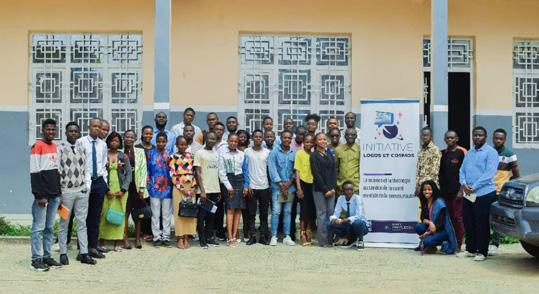
“THIS PROJECT HAS BEEN A BEAUTIFUL ADVENTURE FOR ME. I HAVE COME TO UNDERSTAND THAT MY REAL MISSION IS TO BE WITH THESE DESPERATE PEOPLE WHO NEED TO SEE CHRIST IN US.”
Sarah Obotela Sociology graduate student and LCI Catalyst
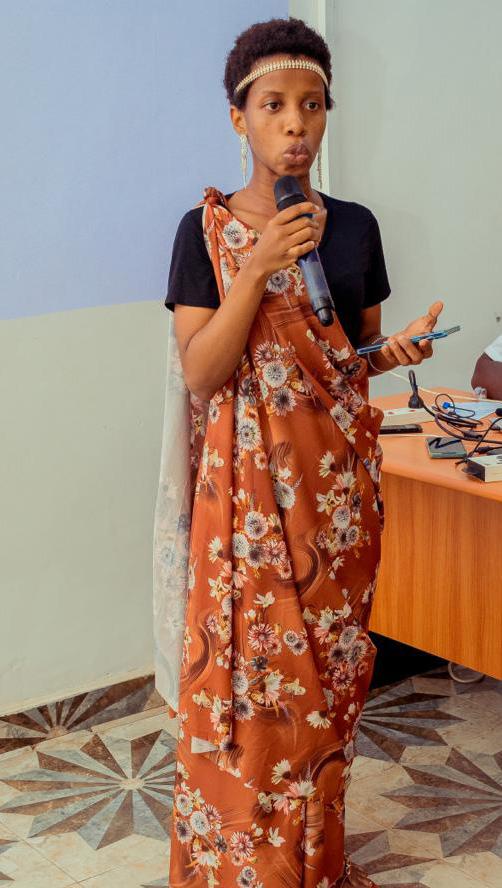
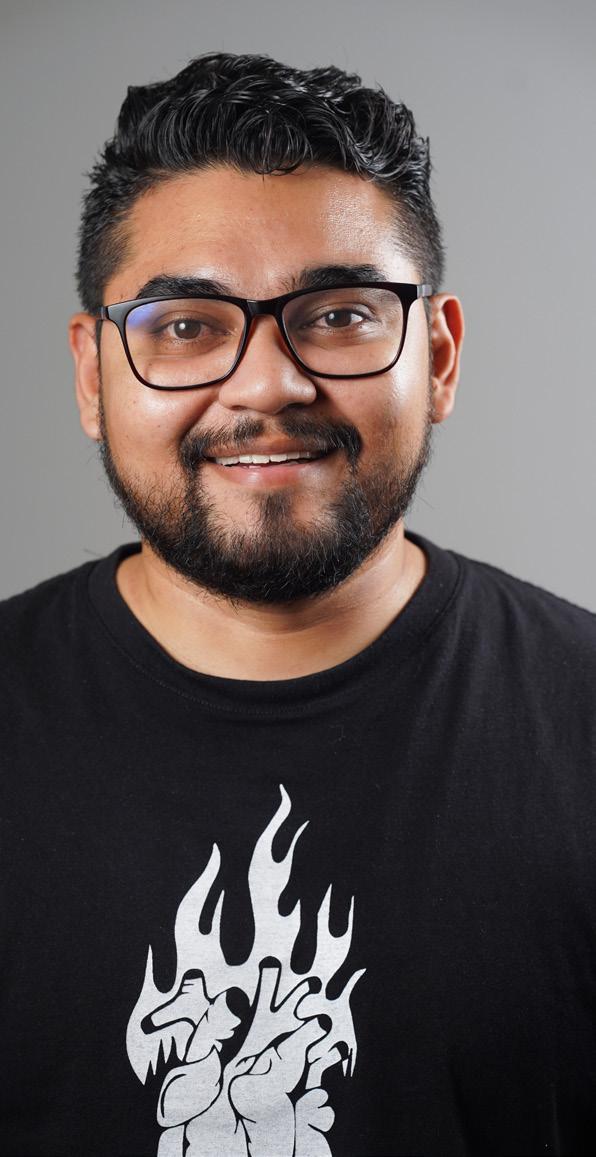
The youth mental health crisis is a global problem that has been flagged by the World Health Organization, as well as by IFES in its Global Trends Report. In Latin America, mental health is aggravated by poverty, violence, and human rights violations.
Mexican psychologist Dr Elías Coreas Soto has led a two-year LCI project that has integrated psychology and theology to improve student mental health in Latin America.
He conducted a mental health survey among students and staff in Compa, the national movement in Mexico. He used the findings and his clinical expertise to train staff in IFES movements in Mexico, Guatemala, El Salvador, and Honduras, empowering them to provide more holistic pastoral accompaniment to students. Additionally, he created a printed mental health handbook for staff.
Elías also conducted research on how the theology of virtues can be brought into dialogue with techniques from Cognitive Behavioural
Therapy (CBT). Positive psychology tends to focus on the four classic cardinal virtues –prudence, fortitude, temperance, and justice – as well as the virtue transcendence, which includes connection to spirituality, purpose, and gratitude. Transcendence aligns with the Christian faith, which has its own
“THE THERAPY PROGRAM, WITH ITS APPROACH OF INTEGRATING SCIENCE AND FAITH, HAS TAUGHT ME EMOTIONAL MANAGEMENT STRATEGIES THAT HAVE BEEN SUCH A BLESSING. IT WAS GREAT TO EXPERIENCE CHANGES AND BENEFITS IN THE
A student participant in Elías’s project
theological virtues: faith, hope and charity. Elías convened a team of therapists and led an online group therapy program for students (from IFES movements and beyond) that incorporated virtue theology and CBT. He evaluated the program’s effectiveness and is
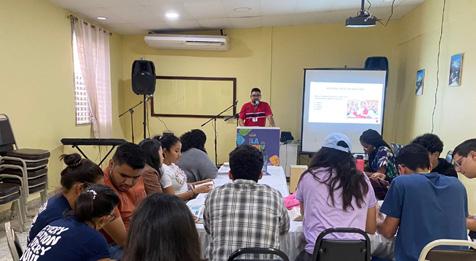
preparing to submit his findings to an academic journal.
“I have discovered that there is significant compatibility between biblical principles and CBT,” explains Elías. “While there is extensive literature in English on integrating theology and psychology, there is very little in the Latin American context. My project aimed to address this gap.”
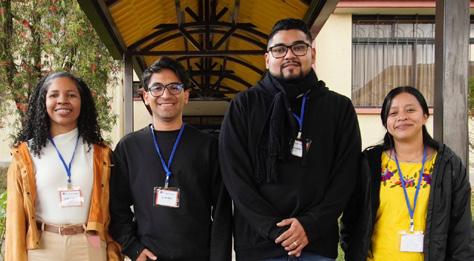
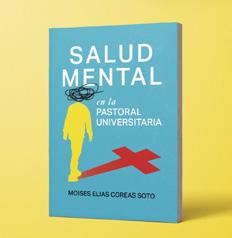
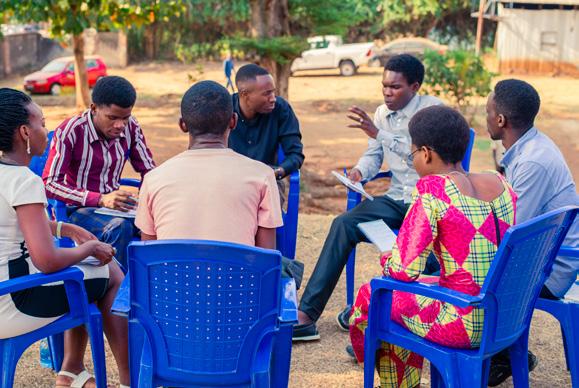
Peace remains fragile in Burundi. Today’s students may not have experienced war, but the ethnic tensions that led to genocide, a decade-long civil war, and an attempted coup in 2015 still linger below the surface. Laurent Kayogera, a staff member with UGBB, the IFES national movement, reports that hate speech, unrest, and violence is easily provoked both on university campuses and in the broader society.
Through his LCI project, Laurent has promoted dialogue about peace and reconciliation and equipped students and religious leaders to prevent and resolve conflicts on university campuses and churches.
Laurent organized three conflict resolution workshops, which were attended by more than 60 students. They explored connections between faith, science, and culture by examining biblical texts, legal principles, and Burundian traditional approaches to conflict resolution.
The training sessions stirred action. At one workshop, student leaders from UGBB were joined by three members of the University of Burundi’s Joint Commission for the Peaceful Resolution of Conflicts. Prompted by Laurent’s workshop, the commission has established general assemblies for students to dialogue on student life and avoid disputes in the university community.
Students were so enthusiastic about the workshops that they have resolved to organise similar future events. To reach more students and campuses, Laurent also released a podcast series on Facebook about dialogue as an alternative to violence.
Laurent’s project has touched religious leaders as well. Although the majority of Burundi’s population identify as Christian, inter-church conflicts and leadership crises are common –especially regarding succession. So, Laurent facilitated a conflict-resolution workshop for 13 church leaders.
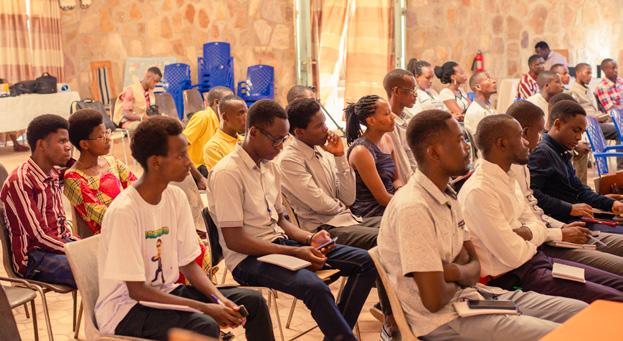
“I remain convinced that creating spaces to discuss ethnic issues and the roots of conflict can shift mindsets, which can change behaviour,” shares Laurent. “I know that doesn’t happen overnight. But with time, with the Lord’s help, my prayer is that the Lord will help us demonstrate the fruit of the Spirit in times of conflict.”
“I NEVER REALISED THAT WE COULD DISCUSS THESE ETHNIC ISSUES WITH SUCH AN OPEN HEART. IT SHOWS ME THAT THERE’S STILL HOPE.”
A student participant at one of Laurent’s conflict resolution workshops
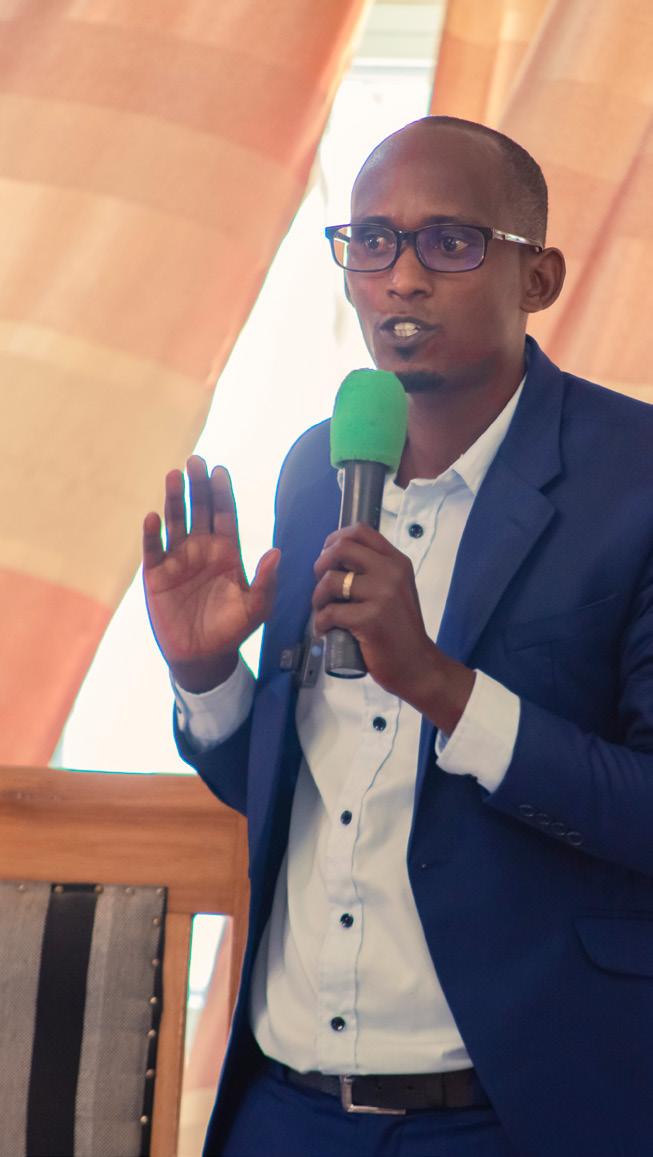
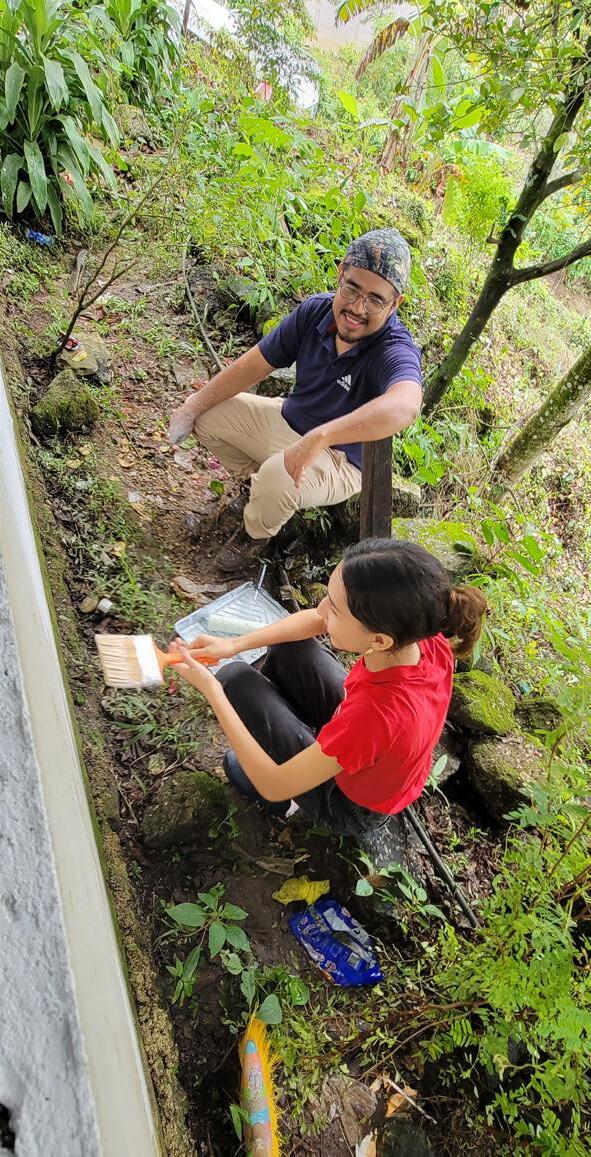
Many Latin American citizens, especially in urban areas, live with a permanent feeling of insecurity,” says Dr Sandra Márquez Olvera. “Crime, corruption, and gender-based violence are daily realities.”
How can Christians respond to such violence and injustice? This was a foundational question in a three-year LCI project spearheaded by Sandra, a research professor in psychology. Her project focused on Mexico, El Salvador, Ecuador, and Colombia.
Sandra, together with graduate students Areli Cortez and Remy Ocon, conducted a study on the role of Christian social responsibility in IFES movements in Latin America. Their study used a participatory action research approach – a model that includes both action and reflection from community members. This meant while conducting research, Sandra and her team simultaneously equipped students as peace-builders.
Students, staff, and graduates involved in IFES movements participated in six service projects. In Mexico, for example, a group
from the movement
Compa rehabilitated the property of the “Return Home Collective,” an alliance of families whose relatives have “disappeared” due to the war on drugs.
In rural El Salvador, members of MUC, the IFES movement, worked
“THIS PLANNING MEETING WAS A GREAT BLESSING IN MY LIFE. I LEAVE WITH A HEART FULL OF GRATITUDE AND MOTIVATED TO CONTINUE WALKING IN GOD’S CALL TO BE AN AGENT OF RECONCILIATION.”
with a partner organization to clean up an abandoned reservoir and install a water pump, allowing the local community to use it again.
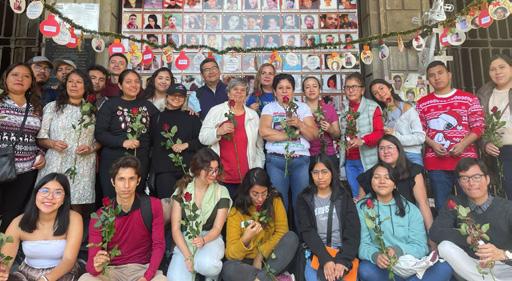
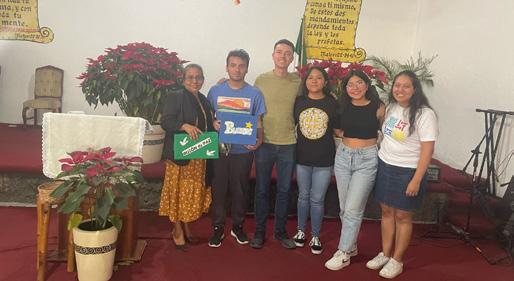
Sandra and her team also led peacebuilding workshops and courses. All these activities enabled them to develop four ethnographies (qualitative academic analyses). These explored the history of Christian social responsibility in the region’s IFES movements, considering the influences of intercultural, intergenerational, and gender differences.
Sandra presented her findings at an academic conference and is preparing to submit a paper to a scholarly journal. She also helped the four national movements to create action plans for embedding peace and justice initiatives into their ministries.
“It is important for IFES movements to reflect on their history in order to adapt to contemporary challenges and empower students to be agents of change, reflecting the love and justice of the gospel in a constantly changing world,” Sandra explains.
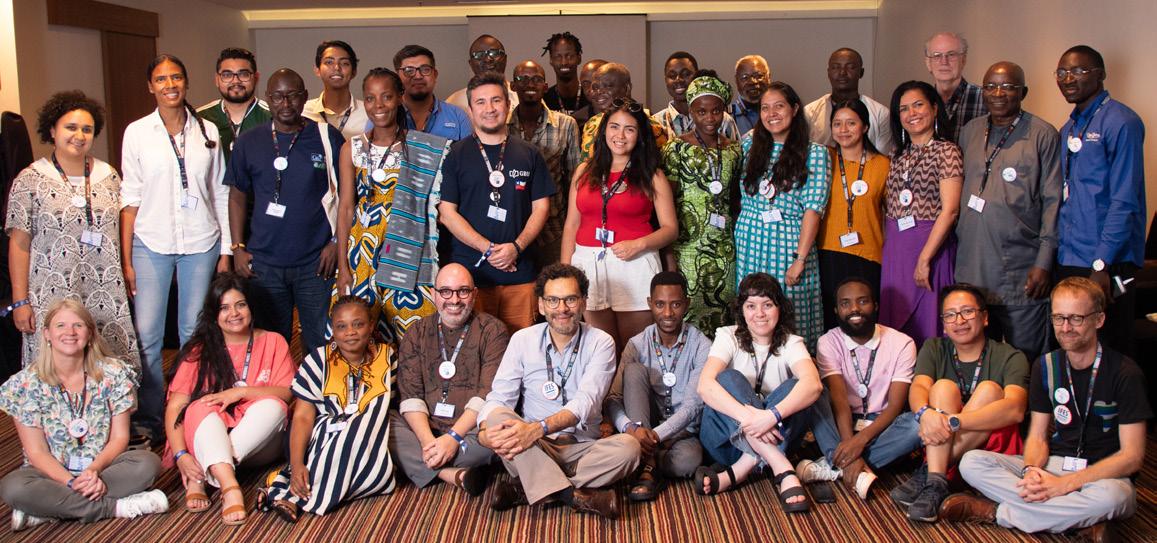
GIVE
Show your support for the future of the Logos and Cosmos Initiative by donating here. Find resources, news, and ideas here.
ENGAGE THE UNIVERSITY
IFES is grateful to the John Templeton Foundation for its support of the Logos and Cosmos Initiative.
Learn more about the LCI and how you can pray for the program by visiting its website.
Find out more about IFES at ifesworld.org. Direct any specific enquiries to info@ifesworld.org.
@ifesworld #IFESWorld #WeAreIFES
International Fellowship of Evangelical Students
IFES, 5 Blue Boar Street, Oxford OX1 4EE, United Kingdom
IFES/USA, PO Box 46007, Madison, WI 53744, United States of America